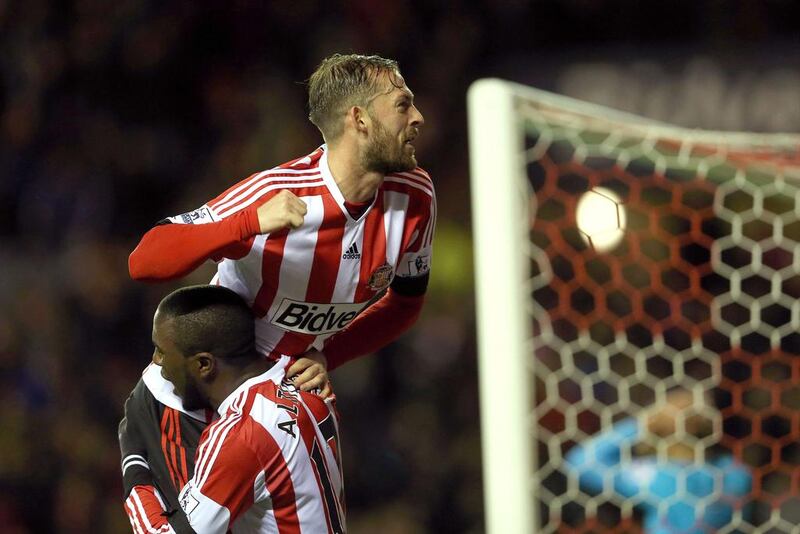For Sunderland, the season begins now.
The good news is that they have played all of the Premier League’s putative top six, plus Newcastle United, at home. The bad news is, they are five points adrift and, for all the talk of ill fortune, they were comprehensively outplayed in the second half on Saturday by Tottenham Hotspur.
To use the metric of equivalent fixtures – that is, comparing the away game at West Bromwich Albion this season with the away game at West Brom last and substituting the three relegated sides for the three promoted ones – Sunderland are only three points worse off than at this stage last season. That reflects both the fact that they were not very good last year and that the fixture list has not been generous.
But with victories over struggling West Ham United on Saturday and Norwich City the following week, Sunderland will actually be better off than they were in equivalent games last season. They might even climb out of the relegation zone.
It is one thing to make the suggestion, of course, and quite another to accomplish it, given that Sunderland have not won back-to-back league matches since April.
That success, the 3-0 win at Newcastle United that gave Paolo Di Canio his brief hero’s status in Wearside, also represents Sunderland’s last away win in the league.
And that really is the nub of the matter: for all the talk of the imbalance of Sunderland’s home fixtures, for all that they have faced in a run of seven difficult games at the Stadium of Light, what has really let them down has been their away form.
They should have beaten Fulham on opening day, but that aside, six points from seven tough home games is a reasonable return.
What has undermined the season has been the two points from seven away games against sides likely to finish in the bottom 12.
Some of that has been down to ill fortune – a strange bounce that led to John O’Shea’s panic, a red card and a penalty at Crystal Palace; the absurd red card for Wes Brown at Stoke City; the handball not given, the bar struck, and Emanuele Giaccherini’s miss at Aston Villa – but a lot more has been attributable to ineptitude and poor discipline.
The match at Hull City may have been lost anyway, but the red cards issued to Lee Cattermole and Andrea Dossena made it a certainty. The losses at West Brom and Swansea City were shameful.
It is true that since Gus Poyet replaced Di Canio as manager, there has been noticeably better spirit, although that also seems to have brought more reckless tackling. As midfielder Jack Colback noted after Saturday’s defeat, Sunderland had only their only sloppiness to blame for the equaliser, when Ondrej Celustka penetrated too deep and nobody reacted quickly enough as Paulinho stabbed in.
But there is at least fight, and this slim ray of hope, remaining. The margin for error now is tiny, but Sunderland could yet survive.
If they are to do so, though, the comeback has to start over the next two weeks.
sports@thenational.ae





